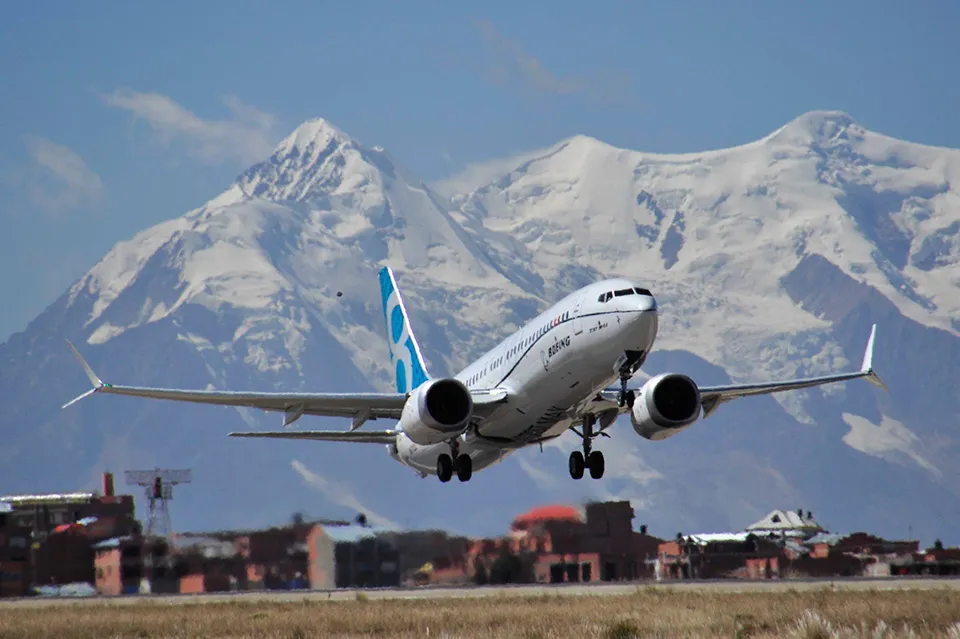
FAA chief confirms MAX grounding will stretch into 2020
Dec 11, 2019

The FAA chief has announced that the grounding of the Boeing 737 MAX will extend into 2020, highlighting ongoing safety concerns and the need for thorough inspections before the aircraft can return to service. This decision comes as regulatory authorities continue to assess necessary modifications and pilot training programs related to the aircraft's operational issues. The grounding, which has already lasted several months, affects numerous airlines and has significant financial implications for Boeing and the aviation industry. Stakeholders are urged to prioritize safety while working towards the eventual reintroduction of the MAX into the skies.
The Federal Aviation Administration (FAA) chief has recently confirmed that the grounding of the Boeing 737 MAX will extend into 2020. This decision comes after a prolonged review process, ensuring that safety protocols and regulatory standards are met before the aircraft is allowed back in the skies. The MAX, which was involved in two tragic accidents leading to its grounding in March 2019, has undergone numerous updates and modifications aiming to enhance its safety features.
Understanding the Impact of the MAX Grounding
The grounding of the Boeing 737 MAX has had a significant ripple effect across the aviation industry. Major airlines have faced financial losses, operational disruptions, and changes in flight schedules. The following table illustrates the impact of the MAX grounding on various stakeholders:
| Stakeholder | Impact |
|---|---|
| Airlines | Loss of revenue due to grounded flights and additional costs for leasing alternative aircraft. |
| Passengers | Flight cancellations and delays, leading to inconvenience and dissatisfaction. |
| Boeing | Significant financial losses and reputational damage, coupled with increased scrutiny from regulators. |
| Suppliers | Disrupted supply chains and reduced orders, impacting businesses dependent on the aviation sector. |
Boeing's Response to the Grounding
In response to the grounding, Boeing has been actively working to address safety concerns and regain trust from regulators and the public. The company has implemented various changes to the 737 MAX, including software updates and enhanced training programs for pilots. The following key measures highlight Boeing's commitment to safety:
- Software Updates: Boeing has introduced significant changes to the Maneuvering Characteristics Augmentation System (MCAS), which was implicated in the accidents.
- Pilot Training: Enhanced training programs are now mandatory for pilots operating the MAX to ensure they are well-versed in the aircraft's systems.
- Increased Transparency: Boeing has pledged to communicate more openly with regulators, airlines, and the public regarding the aircraft's safety status.
Regulatory Scrutiny and Future Outlook
The FAA's decision to extend the grounding into 2020 has come under intense scrutiny, as stakeholders await clarity on when the aircraft will be deemed safe for return to service. The agency has emphasized that safety remains its utmost priority, and it will not rush the approval process. The following factors will influence the timeline for the MAX's return:
- Regulatory Reviews: The FAA is conducting thorough assessments of the modifications made to the MAX, which includes reviewing flight test data and pilot training effectiveness.
- International Coordination: Other aviation authorities, such as the European Union Aviation Safety Agency (EASA), are also involved in evaluating the aircraft, leading to potential delays in approvals.
- Public Perception: The public's confidence in the 737 MAX will play a vital role in its eventual return to service. Boeing and the FAA must work to rebuild trust.
Conclusion
The extension of the Boeing 737 MAX grounding into 2020 is a critical juncture for the aviation industry. As the FAA continues its rigorous review process, the focus remains on ensuring safety and restoring confidence in the aircraft. Stakeholders are closely monitoring developments, and the outcome will shape the future of not only Boeing but the wider aviation sector.
As we look ahead, it is clear that the road to recovery will require collaboration among airlines, regulators, and manufacturers. The lessons learned from the MAX incidents will undoubtedly influence future aviation safety regulations and practices, emphasizing the industry's commitment to prioritizing passenger safety above all else.
Related Articles

Explore Thailand: The Best Islands to Visit for Paradise, Adventure, and Relaxation

The Ultimate Guide to the Best Islands in Thailand for Your Next Getaway

Do babies need passports? How to get a passport for a newborn

How to get a U.S. passport fast: here’s how to expedite the process

What is Mobile Passport Control: 5 reasons why you should use it

SENTRI vs. Global Entry: A detailed guide

Do you need a passport to go to the Bahamas? Let’s find out

Do you need a passport to go to Mexico? A detailed guide

Do you need a passport to go to Canada? We got the answer

Do You Need a Passport for a Cruise: An Essential Travel Guide

Booster Seat Requirements: All the Rules to Follow in Your Rental Car

What Are the World’s Most Powerful Passports, and How Does Yours Rank?

How to Take a Passport Photo at Home: A Helpful Guide

You've got to have heart! Southwest's new livery

Your opinion: Should water be free on low cost carriers?

Young women bolder than guys as solo travellers
